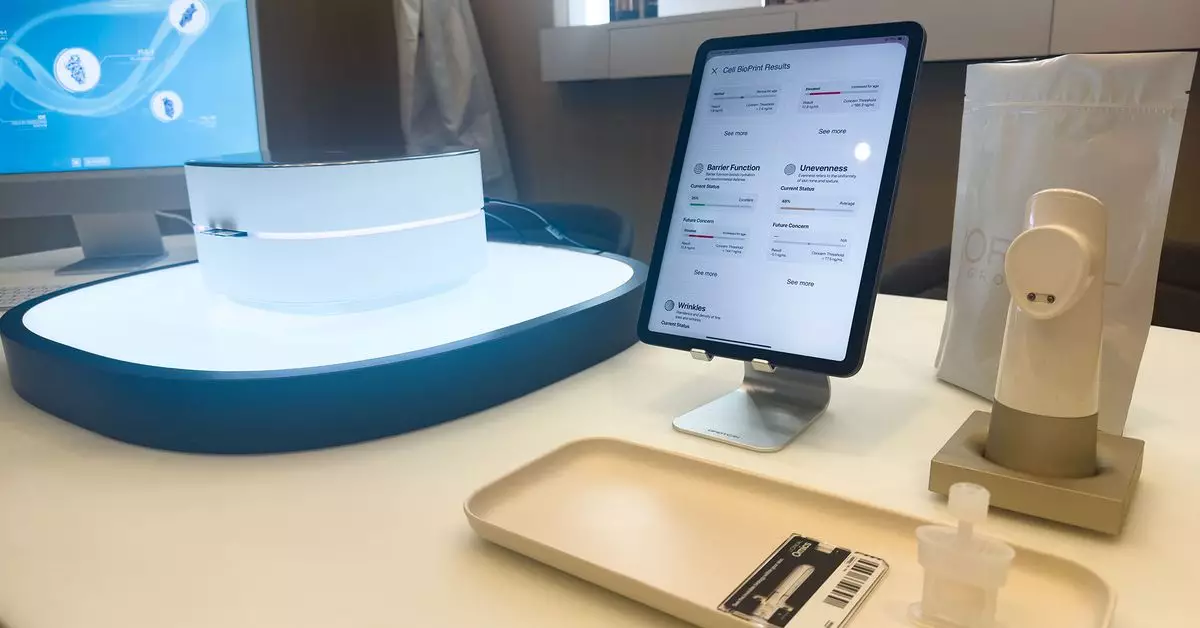The skincare industry has undergone a significant transformation in recent years, largely propelled by innovations in technology that promise personalized solutions tailored to individual skin types and conditions. L’Oréal’s latest initiative, the Cell BioPrint, marks a notable advancement in this trend, combining a scientific approach with cutting-edge technology to provide consumers with a deeper understanding of their skin’s unique needs.
As someone who has grappled with various skin issues, I found myself in Las Vegas at CES 2025, surrounded by an array of products that claim to address my skincare needs. The dry climate left my skin feeling parched and neglected, a stark reminder of the deficiencies in my current regimen. My curiosity was piqued by L’Oréal’s Cell BioPrint, a device that promises to revolutionize the skincare landscape by analyzing skin samples to produce a detailed report on an individual’s skin condition.
Cell BioPrint serves as a mini-laboratory, assessing multiple parameters like oiliness, pore size, and skin barrier function, while also flagging any potential issues that may arise with aging. The device does not merely provide a snapshot of the present condition of the skin; it also considers genetic and lifestyle factors, offering a future outlook on possible vulnerabilities.
During my interaction with Cell BioPrint, I experienced a straightforward testing process that inspired confidence. A professional applied a specialized sticker to collect samples from my skin, which were then prepared and analyzed in real-time. This hands-on approach minimizes user error and ensures that the data collected is both accurate and reliable.
The results were revealing. They indicated a congruence between my biological and chronological age—an affirmation of my skincare routine—while also signaling areas for improvement. I learned that although my skin barrier was currently robust, I could face challenges in the future, which drove home the importance of proactive skincare strategies.
To gain a deeper insight into the science behind Cell BioPrint, I spoke with Guive Balooch, L’Oréal’s global vice president of Technology Incubator. He explained that the foundation of this innovative tool lies in an extensive body of research conducted by over 800 biologists over a decade. They aimed to identify specific proteins associated with skin health, ultimately narrowing down thousands of proteins to just a handful that provide actionable insights.
This meticulous research process, grounded in the field of proteomics, seeks to understand how environmental factors, lifestyle choices, and genetics influence protein expression in the skin. With a solid database established from over 4,000 individuals across different continents, L’Oréal’s findings are not only fascinating but also pivotal in amplifying the efficacy of personalized skincare solutions.
Skeptics might view Cell BioPrint as a veiled attempt to market more products to an already health-conscious consumer base. However, Balooch argues that the device encourages informed purchasing rather than excessive consumption. It aims to guide users toward products that are more likely to yield beneficial results and to eliminate unnecessary purchases.
In an industry rife with misinformation and influencer-driven trends, Cell BioPrint stands as a beacon of clarity. For someone like myself, who has experienced the ups and downs of various skincare fads, understanding the science behind product recommendations gives a sense of empowerment. With concrete data at my fingertips, the decision-making process becomes more strategic and less prone to the whims of marketing claims.
As I reflect on my experience with the Cell BioPrint, it’s clear that we are on the cusp of a new era in skincare. The convergence of technology and biology paves the way for personalized solutions that can significantly improve skin health and wellness. By prioritizing evidence-based practices, tools like Cell BioPrint not only aid individuals in tailoring their skincare routines but also contribute to a broader understanding of skin health.
Moving forward, embracing this level of personalization may very well alter the landscape of skincare, transforming it from a one-size-fits-all approach to one that acknowledges and celebrates individual variation. For all of us who are deeply invested in our skincare journeys, it seems like the future has never looked more promising.

